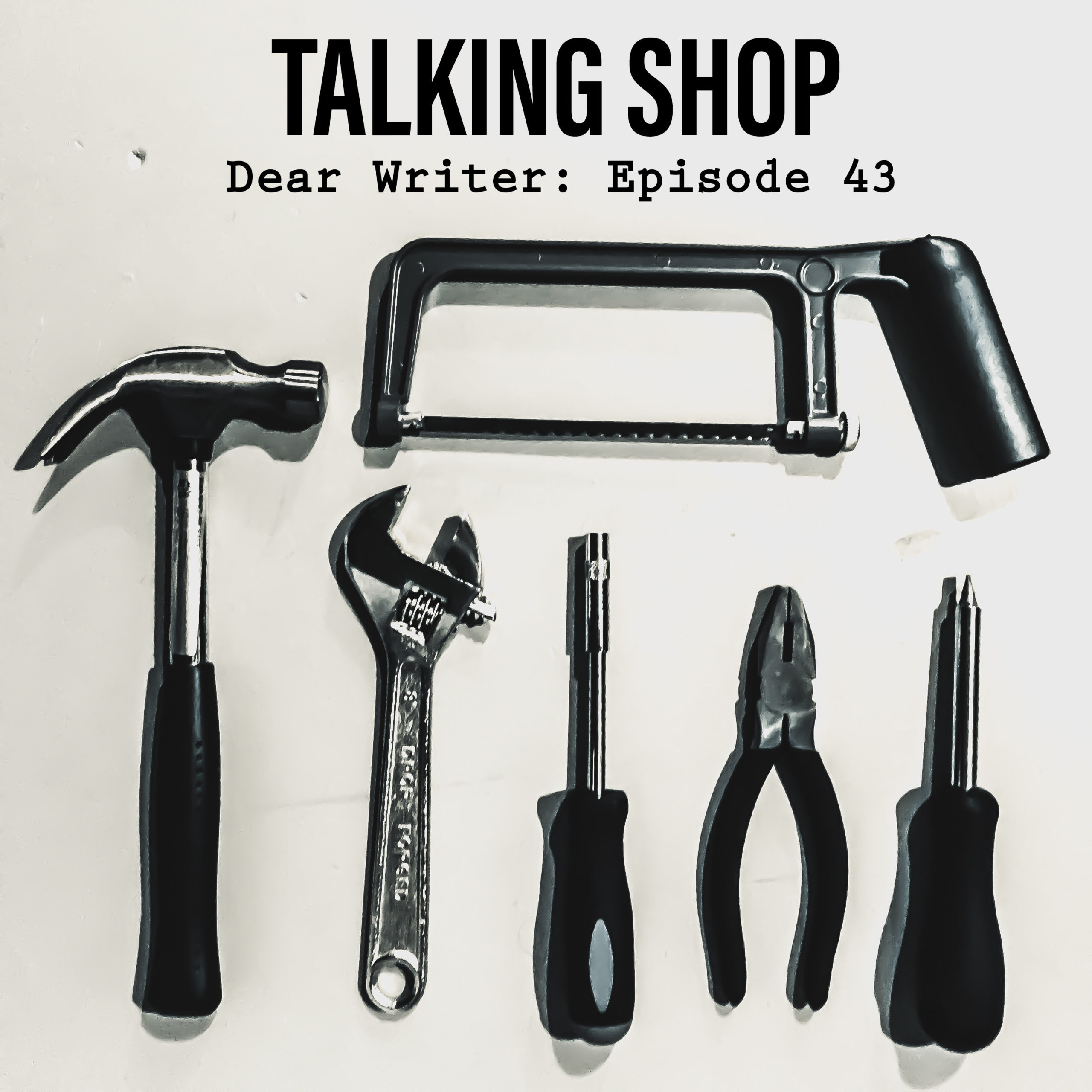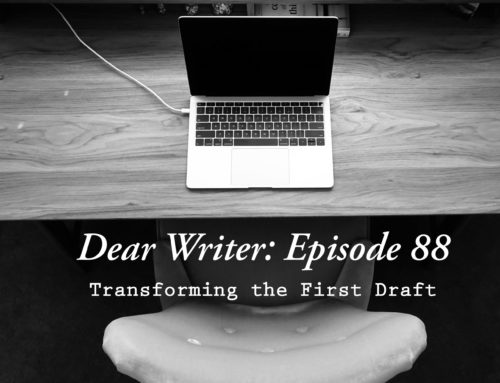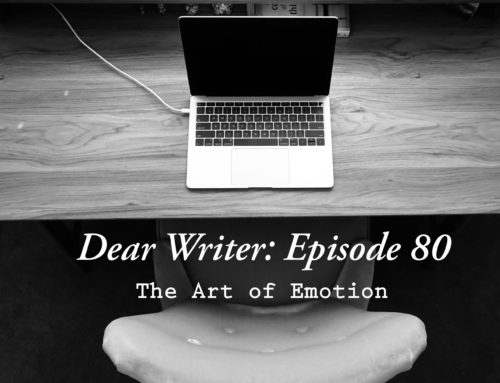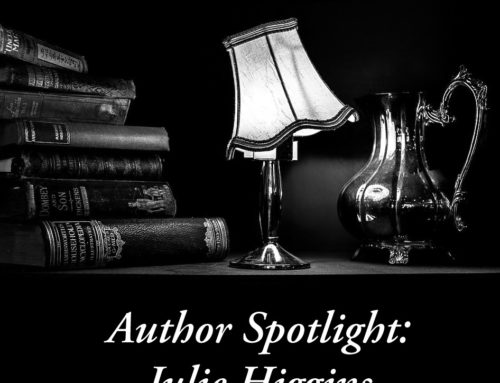Talking Shop
On this talking shop episode, we explored two writing resources. Sarah was excited to finally have purchased a book, The Emotion Thesaurus: A Writer’s Guide to Character Expression by Angela Ackerman and Becca Puglisi. Ashley discussed a chapter of an academic book she read. The book was entitled Beyond the Blockbusters: Themes and Trends in Young Adult Fiction and written by Rebekah Fitzsimmons and Casey Alane Wilson, and the chapter Ashley refers to in this episode is titled, Exploring the Genre Conventions of the YA Dystopian trilogy as twenty-first century utopian dreaming.

Episode Summary
We began by talking about Sarah’s chosen resource, The Emotion Thesaurus. This book is one that’s cropped up a couple of times before in other episodes of the Dear Writer Podcast, however Sarah felt it was worth revisiting in a talking shop episode, as it is incredibly useful. Sarah finds it handy to have nearby when writing for those situations where she reuses the same phrases over and over again, especially when describing emotion. There are a broad number of emotions listed in the book, and each emotion is divided into categories: physical signs of the emotion; internal sensations; mental responses; acute or long-term responses; and signs if the emotion is being repressed. Sarah used the example of anxiety (which seems to be very common in our books). In addition, the book also identifies what each emotion might escalate or de-escalate to, and common ‘power verbs’ that are relevant to the emotion. Finally, it also has a handy section at the beginning which not only provides advice on how to use the book, but also goes over some other useful tips, such as how to show hidden emotion.
Ashley then followed with a discussion of her writing resource. She explained that since last time, she had gone down a rabbit-hole of researching teenage dystopian fiction. This time, Ashley explored the concept of trilogies becoming popular in teen dystopian fiction and that this is becoming its own unique format. After analysing twelve different series, the authors discovered each trilogy has three phases, though these are not necessarily equally divided into the three books. The identified phase one as establishing the rules of the dystopic system and putting the protagonist in conflict with these rules in a ‘coming of age’ moment. At this point adults are passive participants, and the protagonist is pitted against the system. In phase two, the dystopian world is expanded beyond the protagonist’s home and an awareness grows that the protagonist’s problems are only a small part of a wider, global issue. The stakes are raised and the protagonist’s motivations change. In phase three, alliances are forced to shift as new forces appear to realign the balance of power. Within this last phase, and usually at the final end of the trilogy, a large scale battle is fought between the protagonist and their allies against the controlling forces. Most of these trilogies end with complete and violent overthrow of the system and the deaths of the leaders.
We then discussed the books we have been reading. Sarah talked about a book called That Weekend by Kara Thomas, which attracted her due to similarities she noted between this book and Sarah’s young adult psychological thriller. Ashley had primarily been reading our own book, The Price of Pandemonium, so she chose to review an all-time favorite book of hers instead, Song of the Hills by Margaret Evans.





















Leave A Comment